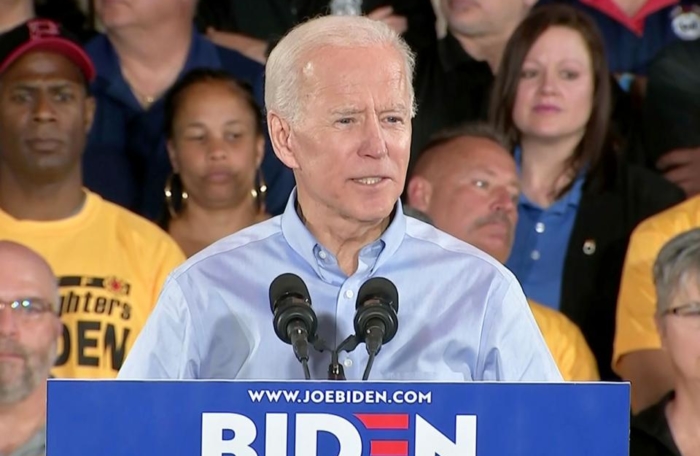Much has been made of Gov. Chris Sununu’s record number of vetoes in 2019. Less has been made of the content of those bills.
Media coverage of the governor’s vetoes has tended to skew toward the most contentious issues, such as voter identification and residency requirements or firearm regulations. But more than half of the vetoes involved bills that can be expected to have a negative effect the state economy.
A small and almost entirely overlooked subset of vetoes involved bills that would restrict citizens’ constitutionally protected free speech rights.
As economic growth and free speech are issues for which the Josiah Bartlett Center for Public Policy advocates, we highlight in this brief the vetoed bills that would have a negative impact on both.
Of the 55 bills that Gov. Sununu has vetoed, 28 (or 51 percent) were bills that would make New Hampshire less economically competitive through the imposition of new taxes, fees or regulations. Three others would suppress constitutionally protected free speech rights.
Not every regulatory bill is on this list, however. For example, although it is a regulation on employers, it is unclear what economic effect Senate Bill 100, banning employers from inquiring about criminal histories on a job application, would have. Reducing recidivism and increasing the economic independence of people with criminal records would be positive outcomes. But these laudable goals have not been shown to follow from this type of legislation. Some research even suggests that such ban-the-box laws increase negative outcomes for law-abiding minority applicants. In his veto message, Gov. Sununu stated that the bill’s intended outcome is best pursued voluntarily. That is consistent with our general approach to economic regulation. Given the uncertainty clouding the outcomes of such legislation, we exclude SB 100 from this list.
For readers following along at home, the 31 bills covered in this brief are outlined below.
Vetoed bills that impose new taxes, fees, or economically costly regulations
House Bills 1 & 2, the state budget. The Legislature’s budget spent nearly $500 million more than Gov. Sununu’s proposed budget, raised business taxes, imposed costly business regulations, and created a structural deficit that would require large spending cuts or tax increases in the future.
House Bill 183, establishing microgrids and requiring electric utilities to buy base-load power from biomass facilities. This bill forces utilities to subsidize biomass plants. The Public Utilities Commission estimated that the bill would impose above-market energy costs of $18 million on utility companies. Utilities would pass those costs on to consumers.
House Bill 211, banning employers from asking about salary history. This ban began in Massachusetts in 2016 and is spreading nationwide. Its intent was to weaken wage discrimination on the assumption that employers would pay people more if they were ignorant of their past history. This may be a good practice for employers to adopt, but supporters and opponents both assume that the bill would force compensation cost increases for businesses.
House Bill 292, expanding the insurance premium tax to include broker fees. The Department of Insurance stated that the bill would increase tax revenue, but it could not say by how much. This functions as a tax increase on insurers with no corresponding increase in services provided.
House Bill 293, banning employers from checking applicants’ credit history. This bill would ban most employers from using a person’s credit history in employment decisions. However, it exempts banks, financial holding companies, government agencies, and numerous positions. The exemptions are an acknowledgement that credit checks are valid for many positions and that disallowing them imposes costly risks on employers.
House Bill 326, redefining “prime wetland” to include portions less than 50 feet wide. Contractors and the state Department of Transportation expressed concerns over the bill’s vague language and its impact on development. The House exempted state highways, but not other development. The New Hampshire Association of Natural Resource Scientists opposed the bill, calling it too vague. It is an unworkable, needless impediment to development.
House Bill 365, expanding the size of solar and hydropower facilities to which electric utilities are forced to pay above-market rates for power. This bill would make solar and hydro generators of up to 5 megawatts in size eligible for net metering, which was created for small, home-sized solar arrays. It would compel utilities to pay about twice the current rate to those generators. The costs, estimated at about $10 million a year, would be borne by ratepayers.
House Bill 409, allowing municipalities to double the current $5 transportation improvement fee they charge for registered vehicles. This is a 100 percent fee increase.
House Bill 582, repealing the consumer rebate for the Regional Greenhouse Gas Initiative. This bill would halt consumer rebates from the RGGI program, costing electricity ratepayers more than $5 million a year.
House Bill 664, removing insurers from much of the auto repair coverage process. This bill would force insurers to pay for any repair “to the extent the claimant’s vehicle is repaired in conformance with applicable manufacturer’s procedures.” That sounds harmless, but in effect it would prevent insurers from negotiating lower prices for many auto repairs, thus raising costs for consumers.
Senate Bill 1, creating a state-run, tax-funded paid family and medical leave program. This bill would impose a $168 million tax on businesses to fund a government entitlement program that would cost taxpayers more than $6 million a year to administer. There is no evidence that employees want this benefit more than any other, and the governor proposed an alternative that would require no new state taxes.
Senate Bill 2, tripling state job training funds deducted from unemployment compensation tax revenues. The bill would raise this funding from $2 million to $6 million a year and allow $600,000 of that to be spent on administration. The state already spends millions on various job training initiatives. By taking this money from the unemployment trust fund, it could trigger additional unemployment insurance tax payments in the future. Legislative staff pegged the additional payments at $13 million in 2021 if the trust fund falls below its required reserves.
Senate Bill 10, raising the state minimum wage to $12 an hour. This bill would force employers to pay higher wages to employees without corresponding increases in productivity. It would function as a tax on hiring the lowest-skilled Granite Staters, reducing their job opportunities.
Senate Bill 20, amending the youth employment laws and employment records and notification requirements for employers. This bill would make employing minor teens more difficult, placing the first rung on the economic ladder out of reach for more people. It would forbid employees from volunteering to work on their designated days off. It would allow the state to force employers to keep employment record indefinitely, instead of for three years.
Senate Bill 72, repealing a requirement that the Public Utilities Commission grant utilities Renewable Energy Credits for the purchase of small-scale solar power. The purpose of this bill is to force utilities to buy Renewable Energy Credits. The PUC testified in committee that it would prefer to modify the formula it uses for granting credits rather than repealing the credit. “Repealing the credit will cause ratepayers to pay more for RPS compliance” than the PUC’s proposal would. This bill would increase New Hampshire’s already high electricity prices.
Senate Bill 74, raising the $25 fee on deeds and mortgages for funding the Land and Community Heritage Investment Program. It would add $10 to the cost of recording a deed or mortgage.
Senate Bill 99, changing the definition of gainful employment for workers compensation purposes. This bill would force employers to make disability payments to people who can work, but who wind up taking a job that pays less than they earned in their last job.
Senate Bill 140, allowing local school districts to deny students academic credit earned through State Board of Education-approved outside courses. The Legislature last year passed a bill allowing students to earn high school graduation credits for approved courses outside of the public school system. Businesses supported the program as a means of improving public education and job readiness. This bill would cripple that alternative education initiative by authorizing school districts to deny credits already earned through the alternative courses.
Senate Bill 146, eliminating the one-week waiting period before someone can receive unemployment benefits. Forty-four states use this waiting period. The Department of Employment Security estimated that this bill would trigger an additional $12 million in unemployment compensation tax payments in the first quarter of 2020 alone. The department warned that in an economic downturn with high unemployment, this change could lead to a significant reduction of the unemployment trust fund.
Senate Bill 148, regulating notifications public employees must be given regarding union membership. This bill was intended to notify public employees of their constitutional right not to join a union and to inform them how much a union charges in dues. The “constitutional right” language was removed and the bill became an attempt to codify in law rather than through contracts various union accommodations. It would write into law that unions must have access to information employees might not wish to share, such as employees’ complete personal contact information, including cell phone numbers and personal email addresses.
Senate Bill 151, establishing administrative procedures for employers who fail to make payroll or obtain workers’ compensation coverage. Current procedures give business owners notice that they might be in violation of the law, and they allow for a swift hearing. This bill allows the state to force immediate work stoppages before a hearing, but suspends the stoppage pending the outcome of a hearing. Violations of a work stoppage order would be a criminal offense. It replaces a procedure that gives businesses the benefit of the doubt with an aggressively adversarial procedure that presumes guilt and imposes potentially fatal penalties.
Senate Bill 167, creating a clean energy resource procurement commission and directly assessing only gas and electric distribution utilities to cover its expenses. This bill creates a commission stacked heavily with renewable energy producers and advocates, tasks it with pursuing long-term contracts for renewable energy generation, and passes the costs on to an industry the commission aspires to destroy. It also would push up energy rates.
Senate Bill 168, increasing the amount of solar energy utilities are required to purchase by 900 percent. By raising from 0.6 percent to 5.4 percent the percentage of a utility’s energy mix that has to come from solar power generators built after 2006, the bill intentionally creates a direct transfer of wealth from electricity ratepayers to solar energy companies. The subsidy could tally more than $120 million by 2025, and $30 million a year after that, according to an analysis by the New England Ratepayers Association.
Senate Bill 205, removing the requirement that systems benefits charge increases be approved by legislators. Electricity consumers pay what the state calls a systems benefits charge each month to fund energy efficiency programs and assistance for low-income residents. This bill allows the energy efficiency portion to be increased without legislative approval, effectively creating a tax that can be increased without being put to a vote of the people’s representatives.
Senate Bill 271, requiring prevailing wages on all state-funded public works projects. This bill artificially inflates labor costs on public-sector, taxpayer-funded construction projects.
Senate Bill 275, requiring all state vehicles to be zero-emission vehicles by 2041. The bill’s fiscal note estimates a $28 million price tag to rush the state to reach this artificial goal.
Senate Bill 307, specifying the “color corrected temperature” of outdoor lightbulbs used by state agencies. The bill states that “such luminaires have a color correlated temperature of 3,000 degrees Kelvin or less when initially installed or replaced….” Though there is not likely to be an immediate cost, as the state already uses that standard, the bill needlessly writes this standard into law, making it hard to change in the future as technologies evolve.
Vetoed bills that limit citizens’ free speech rights
Senate Bill 18, requiring that public employees give 30 days notice if they wish to stop the automatic deduction of union dues from their paychecks. This bill is intended to weaken public employee free speech rights guaranteed under the First Amendment and upheld by the U.S. Supreme Court’s 2018 Janus ruling. It would compel employees to continue paying union dues against their will for 30 days.
Senate Bill 106, changing the definition of a political advocacy organization. This bill is a deliberate attempt to suppress criticism of elected officials before an election. It requires any organization that spends at least $2,500 on “communications that refer to a clearly identified candidate or candidates or the success or defeat of a measure or measures” to file as a political advocacy organization and disclose its donors.
Senate Bill 156, changing reporting requirements for political contributions from limited liability companies. This bill would recategorize contributions from LLCs as contributions from individual LLC members. The effect would be to discourage constitutionally protected rights to associate and engage in political speech. It would carve out political activity as the one area of law where LLCs are not treated as a legal entity separate and distinct from its members.
To download our full brief on these vetoed bills, use the pdf version here: Bartlett Brief — 56% Vetoed Bills










